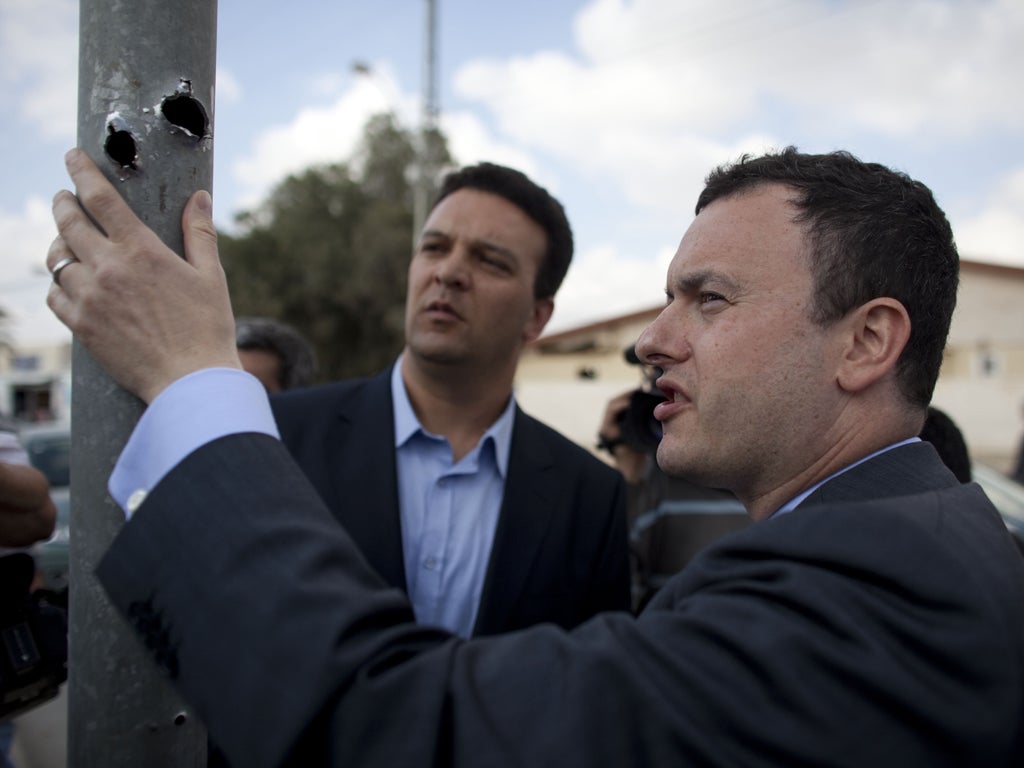Britain warns Israel against blocking funds for rights groups

Britain is heading for a potential rift with Israel over plans for draconian legislation designed to curb foreign funding of human rights and civil society organisations that sometimes criticise government policy.
Israeli ministers are due to discuss two such bills tomorrow. One of the two, backed by the Prime Minister, Benjamin Netanyahu, would limit annual donations to "political" NGOs by foreign governments to £3,300. The bills are seen as targeting Israeli human rights organisations working in the Occupied Territories.
Matthew Gould, the British ambassador in Tel Aviv, has already taken the unusual step of warning Ofir Akunis, the architect of the bill, and a Knesset member in Mr Netanyahu's ruling Likud Party, that the measure would reflect badly on Israel. Mr Gould is understood to have emphasised to Mr Akunis that Britain has "real concerns" about the bill, pointing out that it supports human rights work in many countries and that its goal is to support universal values.
He also made it clear that its support for such NGOs was not aimed to oppose the Israeli government. A second bill promoted by Yisrael Beiteinu, the ultranationalist party headed by Israel's Foreign Minister Avigdor Lieberman, would impose a 45 per cent tax on foreign government donations to organisations that do not receive Israeli state funding. Mr Netanyahu has yet to say whether he supports that bill.
Both the Israeli and North American arms of Rabbis for Human Rights, a broad-ranging Jewish organisation which among other things works alongside Palestinians under threat of attacks from settlers, protested that the planned legislation posed a "severe threat to democracy".
The chairman of the RHR board in Israel, Barry Leff, said the bills were "part of a calculated attempt to silence voices of dissent". And Rabbi Rachel Goldenberg, of the organisation's North America board, said: "This week's Torah reading tells the story of Abraham arguing with God about the planned destruction of Sodom. From the very first Jew, we learn that advocacy and debate are central components of a just society."
Like many other European countries, the UK donates to a wide range of organisations which include, but are by not confined to, those likely to be targeted in the measures. These include a donation of £93,000 to Peace Now's Settlement Watch programme in the current financial year for its work in monitoring the growth of Jewish settlements, regarded by most of the international community as illegal.
In the past Britain has donated to Bimkom, an architects' group which has focused on measures affecting Palestinians in the West Bank, Ir Amim which campaigns for a shared Jerusalem, tours to Hebron organised by the veterans' organisation Breaking the Silence, the legal rights group Yesh Din, and the Association of Civil Rights in Israel.
But it has also donated to a range of organisations which have no connection with the Israeli-Palestinian conflict such as Zaka, the Jewish rescue organisation, the Therapeutic Riding Association, and the Women's International Zionist Organisation, which promotes equality.
Mr Akunis was quoted by Haaretzas saying "the fact that a state such as England can donate money to a movement such as Peace Now is blatantly unfair. This is a law which will bring justice."
Rabbi Arik Ascherman, the director of RHR Israel, pointed out yesterday that the bills specifically targeted funding by foreign governments which gave only to "liberal organisations". This would leave individuals like Irving Moskowitz, a US benefactor of Jewish settlements, free to continue his activities. He added there were rumours of a compromise that might seek to exempt organisations narrowly defined as human rights ones from so-called "political organisations".
But he said part of his organisation's belief in human rights was that groups across the political spectrum should be free to work and express their views.
Join our commenting forum
Join thought-provoking conversations, follow other Independent readers and see their replies
0Comments